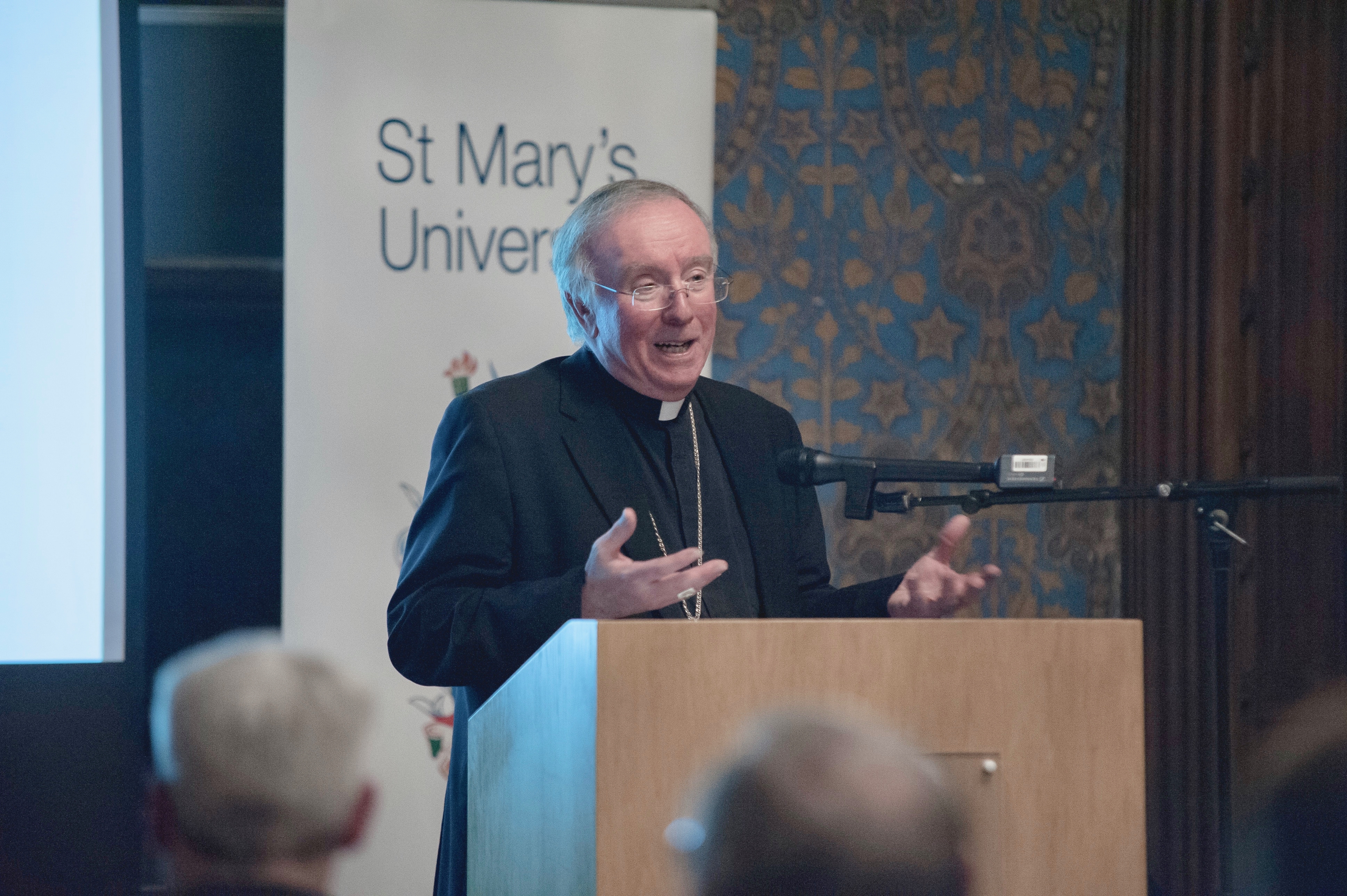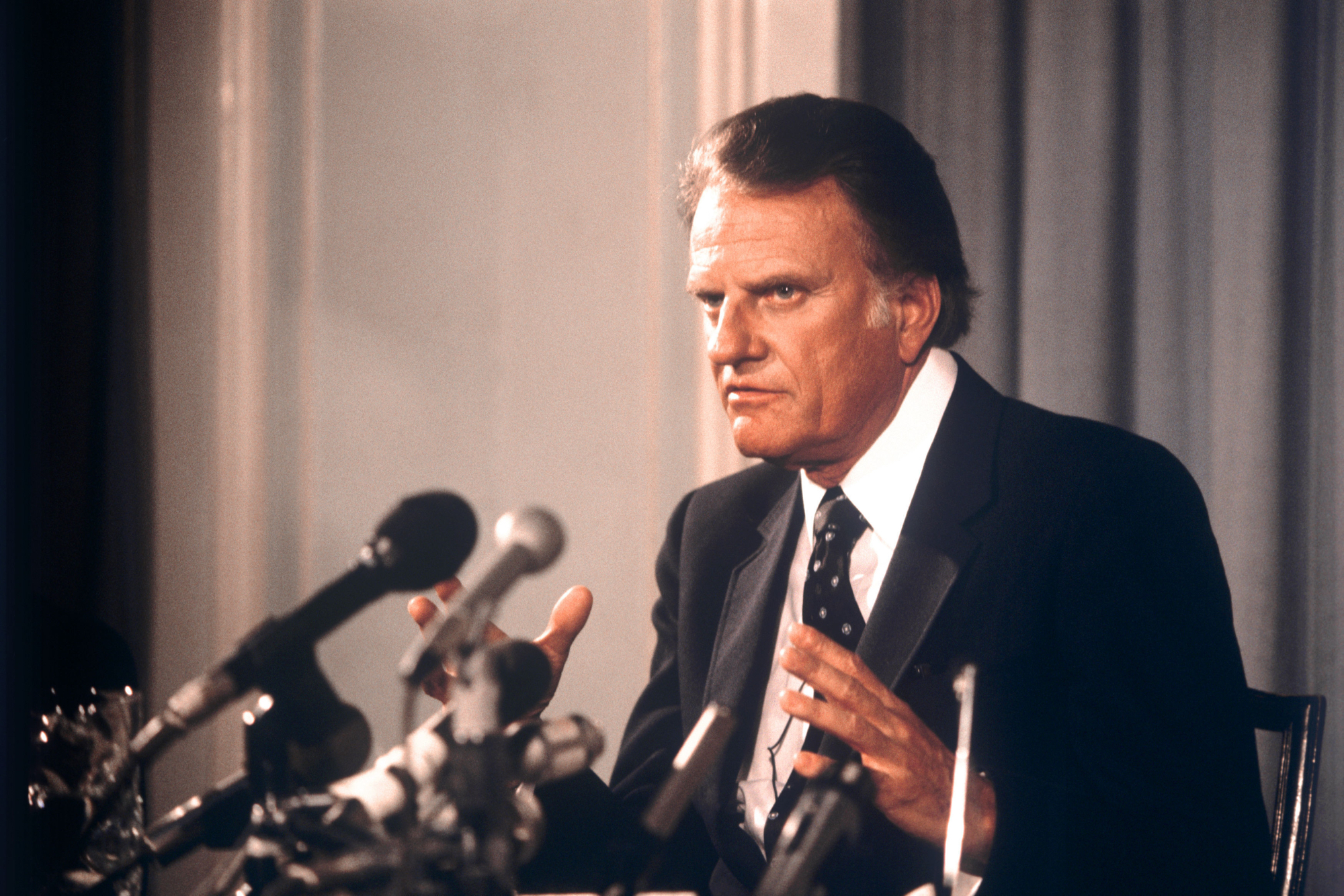Billy Graham, one of the world’s most famous Christian evangelists, has died aged 99 at his home in North Carolina.
Graham’s pioneering talent for combining charismatic biblical teaching with modern media, saw him, in a career spanning more than six decades, personally preach to an estimated 210 million people in 185 countries and reach hundreds of millions more through his radio and television ministry.
Archbishop of New York Cardinal Timothy Dolan paid tribute to preacher Billy Graham today saying:
“As anyone growing up in the 1950’s and 1960’s can tell you, it was hard not to notice and be impressed by the Reverend Billy Graham.
“As an historian, my admiration for him only grew as I studied our nation’s religious past, and came to appreciate even more the tremendous role he played in the American evangelical movement."
Born in 1918 in Charlotte, North Carolina, William Franklin Graham Jr. was the oldest of four children. Aged 16 he attended a series of revival meetings by the outspoken Christian evangelist, Mordecai Ham. The talks sparked a spiritual awakening in Graham and he enrolled shortly after at bible college. He joined a Southern Baptist Convention church and was ordained in 1939. He received further training at Illinois Wheaton College, where he met his wife Ruth McCue Bell, they were married for 64 years until her death in 2007 and had five children.
Graham entered the public spotlight by giving a series of well-attended “sin-smashing” revival meetings that were held under a circus tent in a Los Angeles parking lot in 1949. The press took interest in the charismatic young preacher and began writing articles about him. Graham founded his own ministry, the Billy Graham Evangelistic Association.
In 1954, Graham took his message to London. Such was the demand to hear him that he filled a 12,000-seat auditorium next to a greyhound track at London's Harringay Arena every night for three months. The final meeting of his UK crusade was held at Wembley Stadium, where 120,000 people heard him speak.
Graham believed that the bible was the infallible word of God. He told his audiences that Jesus died on the cross, and called listeners to repent and believe in Jesus. He spoke out against “godless communism” drugs, sex and violence.
He was convinced that he must use “every modern means of communication available” to spread the Gospel throughout the world, and did so in print, television, radio and, later, online.
Graham was the first evangelist of note to speak behind the Iron Curtain, and during the Apartheid era he refused to visit South Africa until the government allowed integrated seating at his events.
He also impacted the civil rights movement of the 1950s and '60s. His early crusades were segregated but once the US Supreme Court issued its landmark ruling in 1954, which found public school segregation unconstitutional, Graham integrated the seatings at his revival meetings. He also Graham befriended the Rev Martin Luther King Jr and together they preached to more than 2 million people in New York City. When questioned about his views on faith and race, Graham argued there was no scriptural basis for segregation.
But, when King and his followers began going to jail for their nonviolent resistance to racist laws, Graham kept his distance.
“He didn’t like the confrontational aspects of civil rights”, William Martin author of biography author of “A Prophet with Honor: The Billy Graham Story,” wrote.
Over the decades, Graham also became the unofficial White House chaplain, participating in nine presidential inaugurations between 1965 and 2005 and offering spiritual guidance – and occasionally political advice – to Republican and Democratic presidents.
This apparent closeness with power brought him criticism, in the 1960s and ’70s, Graham was berated when he refused to challenge President Johnson on Vietnam and defended President Nixon throughout the Watergate scandal.
Fundamentalist Christians have also taken issue with his ecumenical approach to evangelism, and after his 1957 crusade in New York, opponents of Graham's more liberal theology began calling him "the Antichrist."
More recently, Graham has been criticised for his belief that homosexual behaviour was a "sinister form of perversion."
Yet in 2001, following the September 11 attacks, it was Graham who gave the address at the National Cathedral in Washington.
Forced to slow his pace due to declining health, in 1995 his son Franklin took over the Billy Graham Evangelistic Association. Franklin, who backed Donald Trump in last year’s US presidential election, has been strongly criticised for his outspoken views on Islam.
Billy Graham announced his retirement in 2005.
PICTURE: File photo dated 17/05/82 of US evangelist Billy Graham ©PA



 Loading ...
Loading ...